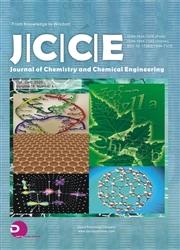Gasification of Municipal Solid Waste for Power Generation in Brazil, a Review of Available Technologies and Their Environmental Benefits
引用次数: 35
Abstract
This article reviews the literature on thermochemical processing of municipal solid waste as the final disposal in Brazil, explores recent publications in the field of solid waste generated, its origin, characteristics and removal mechanisms currently employed, in the same way , available technologies for the thermochemical treatment of MSW with an emphasis on gasification and clean technology are evaluated, highlighting the current technical and reported in the literature in order to identify indicators of efficiency and flexibility of the technology. From the review it is concluded that gasification is a technically feasible option for the thermochemical conversion of municipal solid waste and subsequent power generation, besides being a technology that meets the applicable emission limits. Some of the main advantages of gasification of municipal solid waste are: (a) the sharp reduction in the waste mass (about 70-80%) and volume (approximately 80-90%); (b) the drastic reduction in land use, 1:3000; (c) destruction of organic pollutants and other halogenated hydrocarbons; (d) concentration and immobilisation of inorganic contaminants so that they can be used effectively and safely removed; (e) use recyclables, such as ferrous metals, ferrous ash and slag materials; (f) reducing emissions of greenhouse gases by anaerobic decomposition of organic waste and (g) power generation.巴西城市生活垃圾气化发电技术综述及其环境效益
本文回顾了巴西城市固体废物热化学处理作为最终处置的文献,探讨了固体废物产生、来源、特征和目前采用的去除机制领域的最新出版物,以同样的方式,评价了城市固体废物热化学处理的现有技术,重点是气化和清洁技术。突出当前的技术和文献报道,以便确定技术的效率和灵活性指标。从审查中得出结论,气化是一种技术上可行的选择,用于城市固体废物的热化学转化和随后的发电,并且是一种符合适用排放限制的技术。都市固体废物气化的一些主要优点是:(a)废物量(约70-80%)和体积(约80-90%)大幅减少;(b)大幅减少土地用途,比例为1:3000;(c)销毁有机污染物和其他卤化碳氢化合物;(d)将无机污染物集中和固定,使它们能够有效和安全地使用;(e)使用可回收材料,例如黑色金属、黑色金属灰和炉渣材料;(f)通过有机废物的厌氧分解减少温室气体的排放;(g)发电。
本文章由计算机程序翻译,如有差异,请以英文原文为准。
求助全文
约1分钟内获得全文
求助全文

 求助内容:
求助内容: 应助结果提醒方式:
应助结果提醒方式:


